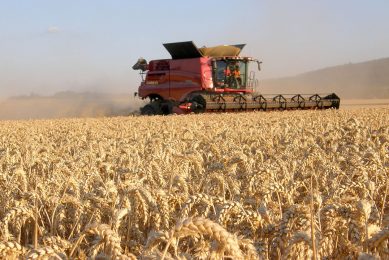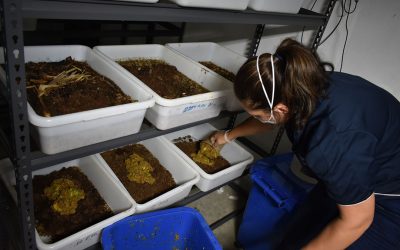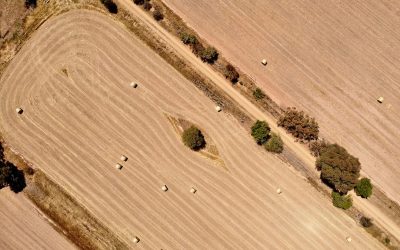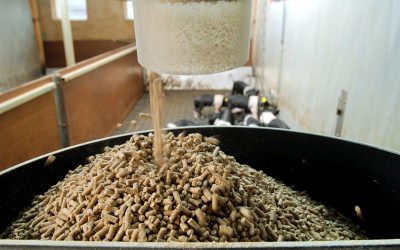Ridley’s Pakenham mill pivotal in local Australia
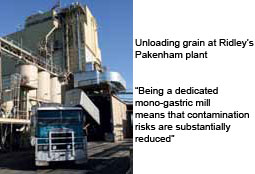
Ridley AgriProducts is the largest feed milling company in Australia. The company’s Pakenham Plant, 60km south east of Melbourne, is the regional hub for Gippsland and the Mornington Peninsula. Feed Tech spoke with Ian Pickthall, Regional manufacturing manager.
The now defunct Robert Hutchison Ltd built the Pakenham mill in 1972 to manufacture and distribute the company’s Hutmill line of feeds. It was the first mill of its type in Australia and was based on a US design and embraced all the latest ideas in stock feed processing. The plant has doubled its capacity over the years with the replacement of the two old Super Ace pellet presses (17” die) with dies of 52.5cm (21”) and 65cm (26”) and a number of other upgrades to plant and equipment. The plant is a dedicated mono-gastric mill, with the majority of manufactured tonnage servicing the poultry industry located in South East Victoria. Regional manufacturing manager Ian Pickthall said that apart from the strategic location, being a dedicated mono-gastric mill means that contamination risks are substantially reduced compared to other mixed mills that manufacture feed for multiple species. Approximately 80% of the output is devoted to the five phase feeding diets the broiler industry requires: pre-starter, starter, grower, finisher and withdrawal. The remaining production at the mill is dedicated to laying birds, pig and turkey rations as well as miscellaneous niche products.
Marsupial feeds
Since the recent Victorian bushfires that wiped out 500,000ha of forest country, the demand for marsupial feeds has increased substantially. Mill output ranges from 5,500-6,000t/week. They run the mill on three, five-day shifts plus overtime in the weekend if sudden peaks in demand occur, but Pickthall stated that demand was normally consistent across the month.
Being primarily a broiler feed producing plant, the main ingredient is wheat. Sorghum is also used as economics dictate, however Pickthall said the wheat gave a ‘hardier’ pellet that could withstand bulk handling. They can carry enough cereal grain at the mill to cater for three days of full production hence supply chain efficiency is of high importance.
The plant was built on a rail line in the days when much of the grain was purchased through central marketing boards. The de-regulation of both domestic and export grain trading in Australia has seen the flexibility and efficiency of road transport take over grain movements to mills such as the Pakenham plant. Soybean is the main source of protein. Canola meal is also used, as is meat meal and blood meal. The rate of canola meal inclusion can be increased should price and/or supply of soybeans deem this to be a more economical option. The majority of Ridley AgriProducts mills are located in close proximity to grain growing regions and as such Ridley purchases a large proportion of its feed requirements direct from farmers. Ridley also participates in the domestic grain trade, purchasing grains and meals direct from specialised grain traders.
Four people running the mill
The whole operation is computer controlled. It takes four people to operate the mill – someone to do the pre-mixing to micro additions, a mill supervisor, someone on the ingredient intake and a panel operator. The broiler industry is continually working on ways to maximise efficiency and in recognition of this Ridley has it own in-house nutritional services department who prepare customised diets and liaise direct with customers.
Feed is distributed by a sub-contracted fleet of nine bulk compartmented tankers with payloads ranging from 3 tonnes to 27 tonnes.
Bagged items delivered to regional produce stores are delivered by taut liner trucks. The longest haul is a 450km round trip but most are less than 200km. Staff training is ongoing and Ian said the days of hiring someone who called at the office on the day were long gone. “We have intensive employee training programs focusing on all operational aspects of the mill including training drills in fire management, emergency evacuation, confined space and first aid held on a regular basis”, he said. “Nearly all the staff are long-term; we have virtually no staff turn over here.”




